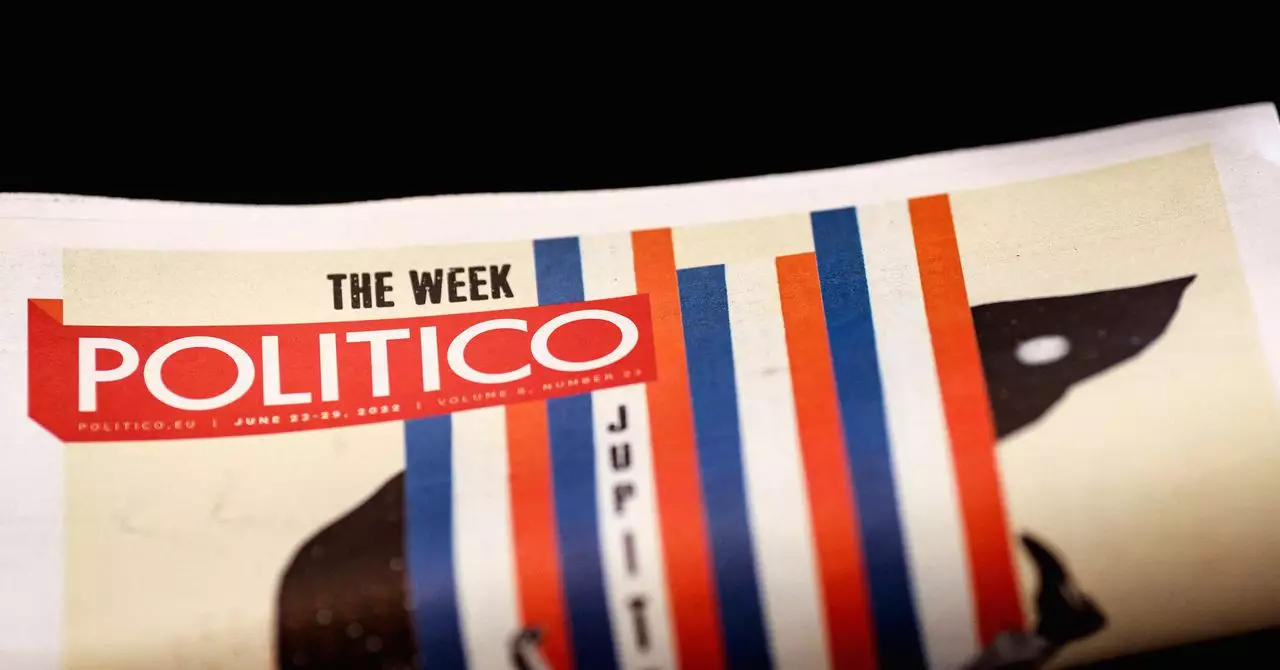In an era where technology reshapes traditional industries, the balance between innovation and ethical journalism has never been more pronounced. Politico, recognized for its journalistic prowess, made headlines last year by securing one of the first union contracts that explicitly addressed the deployment of artificial intelligence (AI) within its newsroom. However, the union representing Politico’s journalists, the PEN Guild, now finds itself at the brink of a potentially transformative legal battle over the implications of these AI provisions. This situation underscores a critical question: How much influence should journalists maintain in the evolving landscape of AI-driven content generation?
With the increasing reliance on AI tools to disseminate information quickly—evident in Politico’s foray into AI-generated live news summaries during high-profile events—the need for clarity in the integration of technology becomes paramount. The union argues that the management’s implementation of AI not only breaches contractual agreements but also threatens the integrity and human touch synonymous with quality journalism. For members of the PEN Guild, this dispute is not merely about contract violations; it is a tussle for their rights and a defense of the journalistic labor standard in the face of advancing technology.
The Heart of the Dispute: Terms and Ethics
The contention revolves around the alleged lack of notification and opportunity for meaningful negotiation regarding the introduction of new AI tools. Union chair Ariel Wittenberg stresses that the contract stipulates a 60-day notice period for implementing any technology that could significantly alter job responsibilities. However, the union claims Politico failed to adhere to this requirement when rolling out its AI capabilities, which raises broader concerns about accountability in the absence of federal regulations governing AI usage in journalism.
For journalists whose work intricately weaves narratives and contexts, the imposition of AI-generated content poses profound ethical questions. The PEN Guild argues that this approach could lead to a devaluation of human oversight, potentially allowing AI to propagate inaccuracies or utilize language deemed inappropriate by human standards—such as the contentious phrasing of “criminal migrants” in AI-generated news summaries.
The stakes are elevated, as the outcome of this arbitration may set a national precedent regarding the agency and rights of journalists in the age of AI. As Jon Schleuss, president of the Newsguild, posits, the union contracts may represent one of the few enforceable structures governing AI accountability in journalism today.
Corporate Response and the Future of Innovation
Politico maintains that it is committed to upholding its collective bargaining agreement while embracing technological advancements that promise to enhance news consumption. Spokesperson Heather Riley asserts that the organization’s dedication to ethical journalism remains intact, emphasizing the intention to leverage AI in ways that align with their established standards. This proclamation, however, contrasts sharply with the union’s depiction of reality within the newsroom.
As the case unfolds, lingering doubts about the adequacy of oversight for AI-generated content persist among union members. Examples of factual inaccuracies, such as misattributions of actions taken by public officials, imply a lack of precision that could be detrimental to journalistic integrity. With ethical boundaries being tested, the union’s call for resolute human oversight becomes increasingly urgent. Journalists fear that without strict guidelines in place, AI could inadvertently erode trust with audiences, a cornerstone of journalistic credibility.
Looking Ahead: The Need for a Collective Voice
This discord highlights the pressing need for a collective voice within journalism as it navigates the complexities introduced by AI. The PEN Guild’s fight is emblematic of a broader trend where labor rights intersect with technological evolution. The outcome of this legal battle could serve as a touchstone for other media organizations grappling with similar challenges as AI continues to evolve and reshape the landscape of news production.
As the industry grapples with how to balance technological innovation with ethical journalism, the lesson from Politico’s current predicament is clear: robust dialogue and negotiation between management and journalists regarding AI usage is essential. Otherwise, the industry risks compromising not just its workers’ rights but also the foundational principles of accuracy, accountability, and truth in reporting that underpin the very essence of journalism. The path forward demands vigilance, engagement, and a steadfast commitment to preserving the human touch in a digitally dominated landscape.


Leave a Reply